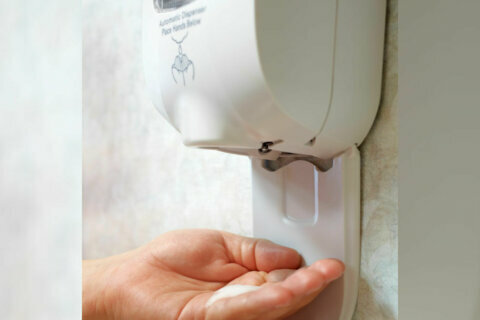
Metro is sanitizing trains more frequently, and continues to hold weekly meetings of a pandemic task force as part of preparations just in case the new coronavirus spreads to the D.C. area.
As WTOP first reported earlier this month, Metro has purchased significantly more cleaning supplies and protective masks as part of its response plan.
Metro remains in phase one of that plan, which is focused on Metro’s own preparations and coordination with health officials and other government agencies, since the risk of the new coronavirus spreading around the D.C. area remains low.
Phase two would be triggered if there is a local outbreak or an imminent threat of a local outbreak, and could include additional distribution of protective masks for workers and even more cleaning steps.
More coronavirus coverage
- Coronavirus FAQs
- DC-area transit systems, airports address coronavirus questions
- Northern Virginia patient being tested for possible coronavirus
- DC-area school systems prepare for expected arrival of coronavirus
- Trump urges calm even as US reports worrisome new virus case
Metro’s pandemic task force with members across at least nine departments was activated Jan. 29, said Metro Chief Safety Officer Teresa Impastato. The group meets weekly.
Impastato promised “continuous updates” for Metro workers, riders and the public.
Deeper cleanings of trains and buses have increased from weekly to about twice a week, Metro’s Dan Stessel said.
Still, just like at home, school, a store or in the office, people can take their own steps to stay healthy.
“We can disinfect surfaces in Metro, and we can step that up 10 times, and it still won’t be as effective as just good personal hygiene on the part of the million people who ride our buses and trains, because if we happen to clean that pole at 9 a.m. and, at 9:05, someone contaminates it, let’s say, and at 9:06 that’s you on the pole, then it doesn’t do any good,” Stessel said.
“It’s really up to each rider to ensure that they are staying home if they’re sick,” Stessel added.
Washing hands, avoiding touching your face, and being sure to cough or sneeze into your elbow or into a tissue are among the key tips to remember, Impastato said.
Though COVID-19 is not an immediate threat around the region now, the hygiene steps can still protect riders from other illnesses, such as the flu.







